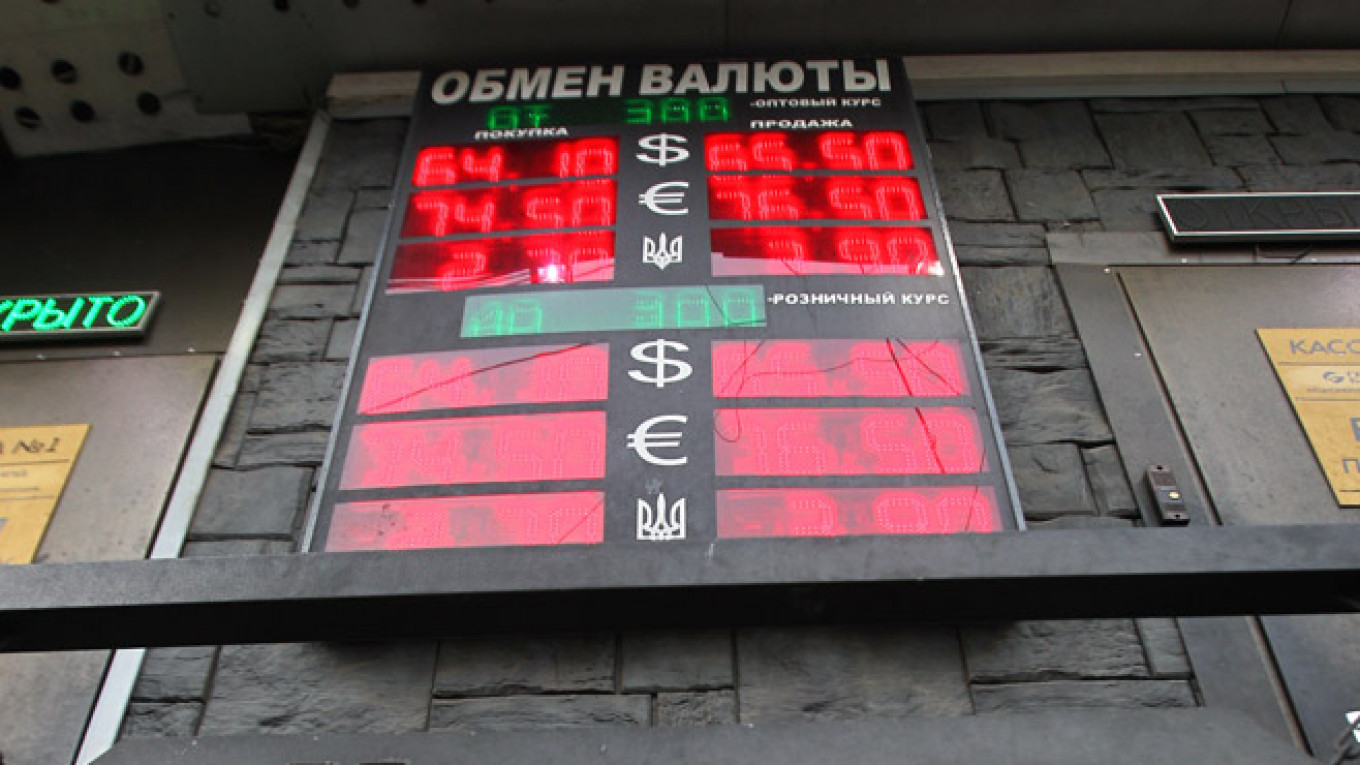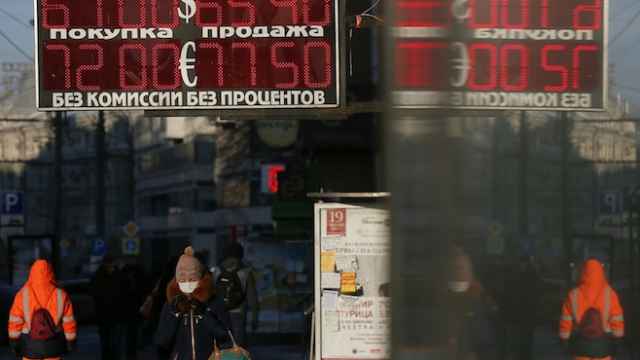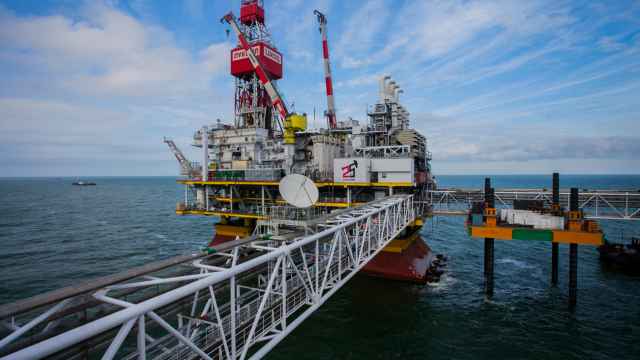The ruble and Russian stocks jumped on Thursday on a firmer oil price and the European Central Bank launching a quantitative easing program.
At 7:30 p.m., the ruble was up 1.2 percent against the dollar on the day at 64.5 and 2.8 percent stronger versus the euro at 73.62.
The ruble-based MICEX stock index closed up 3 percent at 1,666 points and the dollar-based RTS climbed 4.5 percent to 817 points.
The ECB said it would buy 60 billion euros ($69 billion) of bonds a month starting in March, more than expected.
The implications for Russian assets are ambiguous, but the immediate market reaction has been positive.
The ECB's program could boost the dollar, pushing down dollar-based commodity prices such as oil, a driver of Russian asset prices. But oil prices may be supported by faster economic growth in Europe, the aim of the ECB's plan.
"If the ECB does not disappoint, we think the chances of crude oil continuing to bottom out could increase. In light of this, we think the ruble might continue recovering, as we have argued before," VTB Capital analysts wrote.
Oil benchmark Brent fell back on Thursday afternoon, after being up more than 3 percent earlier in the day, settling around $49.3 a barrel, up around 0.5 percent on the day.
The oil price reversal didn't prevent the ruble and Russian stocks holding on to strong gains, also buoyed by a general increase in global risk appetite after the ECB's monetary stimulus announcement.
"We expect this could be a powerful and long-term driver for European markets," analysts at Russian brokerage Freedom Finance said in a note.
The ruble is also being supported as exporters start to convert foreign currency to meet regular tax payments next week.
However, Russian assets face downside risks as rating agency S&P has warned it may soon downgrade its sovereign credit rating to non-investment grade.
"Expectations of further negative action by rating agencies are influencing the local forex market as well as uncertainty regarding the January meeting of the central bank," said Vladimir Evstifeev at Bank Zenit.
The Central Bank meets on Jan. 30. With inflation expected to top 13 percent by the end of January there is little expectation the bank will cut rates.
In December it ramped rates up by 650 basis points to 17 percent to try to reverse the ruble's slide.
A Message from The Moscow Times:
Dear readers,
We are facing unprecedented challenges. Russia's Prosecutor General's Office has designated The Moscow Times as an "undesirable" organization, criminalizing our work and putting our staff at risk of prosecution. This follows our earlier unjust labeling as a "foreign agent."
These actions are direct attempts to silence independent journalism in Russia. The authorities claim our work "discredits the decisions of the Russian leadership." We see things differently: we strive to provide accurate, unbiased reporting on Russia.
We, the journalists of The Moscow Times, refuse to be silenced. But to continue our work, we need your help.
Your support, no matter how small, makes a world of difference. If you can, please support us monthly starting from just $2. It's quick to set up, and every contribution makes a significant impact.
By supporting The Moscow Times, you're defending open, independent journalism in the face of repression. Thank you for standing with us.
Remind me later.






